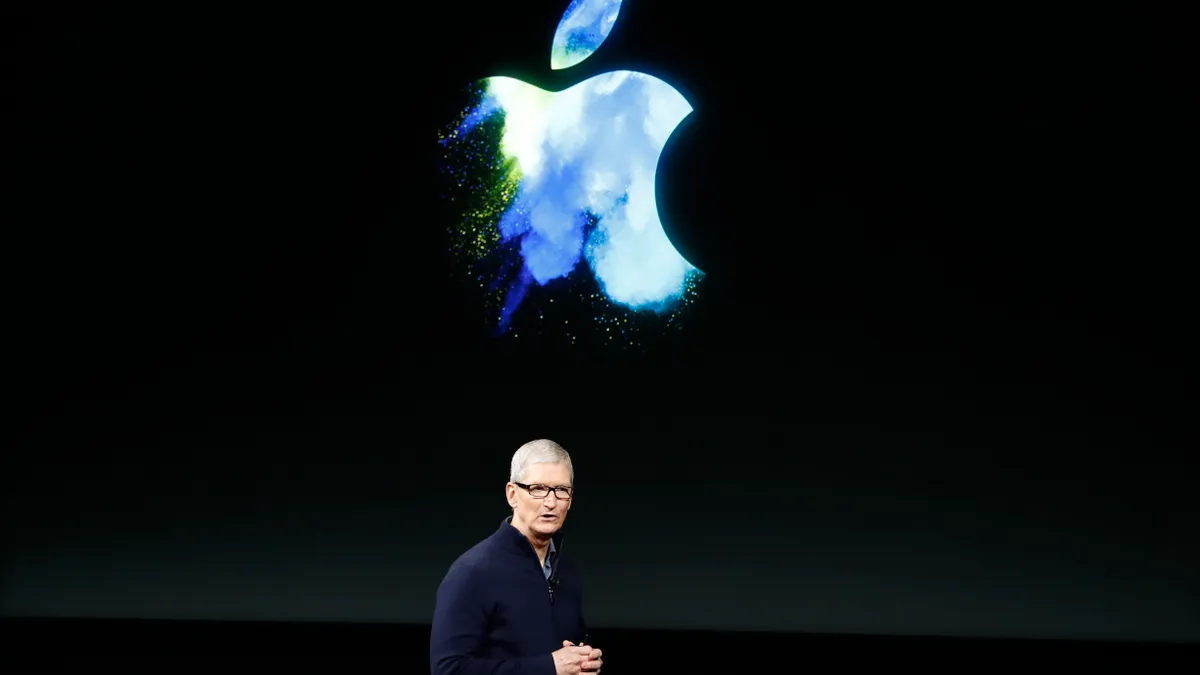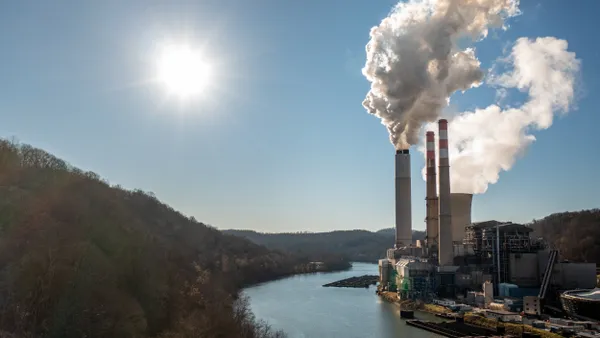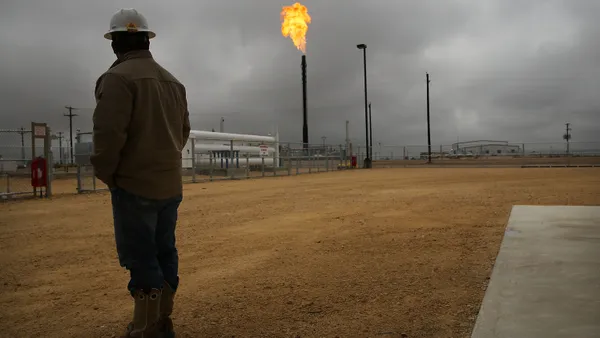Dive Brief:
- Apple said it has made significant progress in expanding its clean energy program and advancing towards its carbon neutrality goal for 2030, with CEO Tim Cook calling the company’s “environmental work a central focus of [its] innovation” during an earnings call Thursday.
- The tech giant said 300 of its suppliers have committed to using 100% clean energy by 2030 when manufacturing for the company. The commitments will help the company decarbonize its supply chain and reach its goal of having a fully carbon-neutral product lineup by the end of the decade, according to a September announcement.
- The consumer electronics company also released its first carbon-neutral products earlier in the quarter, with the newest Apple Watches designed to reduce product emissions by over 75% for every carbon-neutral watch made.
Dive Insight:
Apple first announced its 2030 goal of 100% carbon neutrality in its product manufacturing and supply chain in 2020. Cook’s update represents an increase in clean energy supply chain commitments compared to initiatives outlined in its 2023 Environmental Progress Report released in March. At the time, 250 suppliers representing over 85% of the company’s manufacturing costs had signed onto its Supplier Clean Energy Program.
Cook said the company’s first carbon-neutral products are a “major milestone” and Apple is “going to go even further.”
“We've made our environmental work a central focus of our innovation, because we feel a responsibility to leave the world better than we found it,” he said on the earnings call. “And because we know that climate change cannot be stopped unless everyone steps up and does their part.”
Apple’s revenue was down 1% and product revenues were down 5% for the quarter, though within products, the iPhone had a record quarter, up 3%, while Mac revenues fell 34% year-over-year. Apple CFO Luca Maestri reported 45.2% and 36.6% gross margins for the company and products in the quarter, respectively, with the former representing a quarter record.
When rolling out the Apple Watch Series 9, the company lauded the launch as being part of the first batch of its products to not release more greenhouse gasses into the atmosphere than are offset in its manufacturing. Apple also discontinued the use of leather across its product line and said it was diverting to fully fiber-based packaging.
Maestri reported the company’s wearable, home and accessories sector brought in $9.3 billion in Q4 revenue, a 3% year-over-year decrease. However, he added that the Apple Watch is reaching new consumers, as two-thirds of customers who bought the wearable in the quarter were buying their first Apple Watch.
While consumers and investors are increasingly interested in companies' supply chain emissions, the Beijing-based Institute of Public & Environmental Affairs questioned the validity of Apple’s claims about the carbon neutrality of its products, including whether the tech giant is having suppliers allocate limited clean energy resources to boost the environmental credentials of particular products.
Researchers from IPE said data they collected shows that some of Apple’s suppliers have either rising or only slightly decreasing carbon emissions, which “reflects the fact that they have not achieved large-scale renewable energy substitution or a high proportion of green electricity substitution.”
Given this trend, the report ponders whether it shows that Apple’s supply chain has limited clean energy capacity, and, if so, “is Apple's carbon neutrality ‘milestone’ really a significant reduction in the carbon emissions of its product manufacturing process, or just a mathematical equation whereby Apple cherry picks the limited green electricity from its suppliers and allocate[s] them to one relatively niche product?”
The researchers also questioned if a rise in the carbon-intensity required to create the most recent generation of iPhones was due to the product design or raw materials, or if the amount of clean energy capacity allocated to their production decreased.
Additionally, the nonprofit said the company’s suppliers do not publicly disclose their clean energy use or emissions, which makes Apple’s claims hard to verify. The report says Apple recently stopped requiring suppliers to publicly disclose that data “citing a technical reason.”
“[W]e call on Apple to change its policy of no longer requiring supplier factories to disclose their carbon emissions data, to pay more attention to energy conservation and emissions reduction across its product line, and to put its carbon neutral products, and the progress of carbon neutrality of its entire value chain under public scrutiny, so as to prevent climate-washing,” the report said.
Apple has previously called IPE “a leading non-profit environmental research organization” in a 2022 supply chain report.











